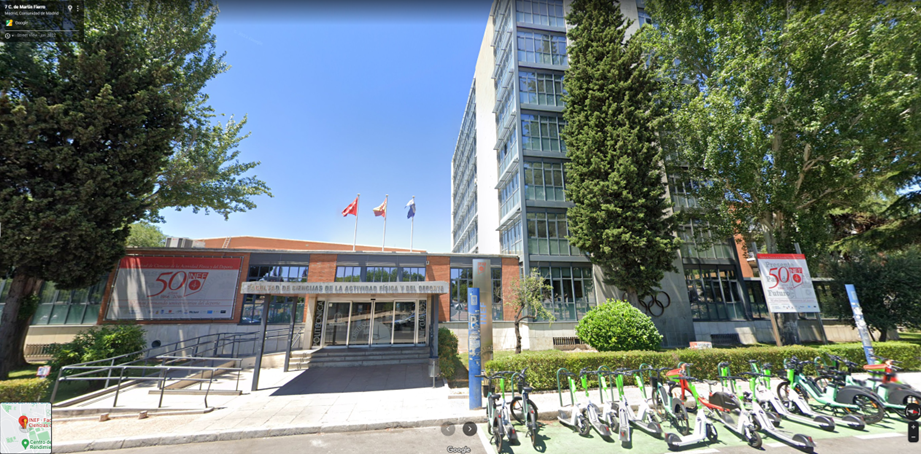You can choose between three options
You can enroll only in the Climate Change Summer School or in one of two other courses as well. Therefore, you have three options:
- Workload equivalent to 6 ECTS credits: You will follow the two-week intensive course “A Multidisciplinary Approach to Climate Change” from July 13 to 24, 2026. This course offers a multidisciplinary view of climate change at the university level.
- Workload equivalent to 12 ECTS credits: From June 29 to July 10, 2026, you will have another two-week intensive course. This pre-course will improve your writing and speaking skills to help you succeed in your academic and professional career. Please, see our Skills Summer School website for more details.
- Workload equivalent to 12 ECTS credits: From June 29 to July 10, 2026, you can enroll in our partner UAM’s Summer School of Economics and Business and take their course Environmental Economics and Policy Analysis: The Theory of Externalities and the Economics of Pollution Control. This course complements our climate change course by providing an in-depth view of the economic analysis of environmental policies. It is a good introduction for students interested in the economics of climate change.
Objectives of A Multidisciplinary Approach to Climate Change
Introduction
Climate change is the main global environmental problem and one of the main economic and social problems facing humanity. And citizens increasingly perceive it as such. For example, the latest Eurobarometer survey, published in June 2025 by the European Commission, shows that 85% of EU citizens believe that climate change is a serious problem for the world. Moreover, climate change is seen as the most pressing issue in several Member States and ranks among the top three concerns in most others.
On the other hand, climate change is a multidimensional problem that must be studied from all disciplines of knowledge. However, our curricula do not usually offer a multi- or interdisciplinary understanding of the problem. Furthermore, although the population perceives it as a very serious problem, there is a notable lack of knowledge about its nature, effects, possible scenarios, policies, and responses to the challenge it poses for humanity.
Objectives
The main objective of this course is to alleviate the shortcomings of our curricula and the lack of knowledge of a large part of the population mentioned in the introduction. To this end, the course offers a multidisciplinary and rigorous vision of the problem of climate change. Experts in each subject offer this comprehensive, university-level vision. Although academically rigorous, their classes are adapted to the necessary introductory level. This is necessary given the heterogeneous profile that students will have.
In addition to the primary objective, the course has a secondary objective. The complementary objective is to provide an enriching study abroad experience. Studying abroad provides students with extraordinary benefits in terms of academic, cultural, and personal enrichment.
Academic Guide / Syllabus
Climate Change Summer School: CCSS Syllabus 2026
Skills Summer School: SSS Syllabus 2026
Schedule of the Climate Change Summer School
Classes are usually held Monday through Friday, from 9:30 a.m. to 1:30 p.m. Some afternoons there will be activities. Occasionally, activities may be in the morning and classes in the afternoon.
We will publish the detailed schedule here before the start of the program. Unfortunately, we cannot announce it well in advance, as institutions only confirm the dates of most academic visits at short notice. In addition, the booking of some visits depends on the number of students finally enrolled, and many students enroll very close to the start of classes.
Academic visits and cultural and social events
We always plan a wide variety of academic visits and cultural and social events to make the most of your summer. We hope they will contribute to make your stay in Madrid unforgettable. The detailed program will be announced later in the detailed schedule.
Here are some examples of our regular visits and events during the 4 weeks of our summer schools:
- Welcome lunch
- Madrid on foot
- Visit to the Prado Museum
- Visit to the Congress of Deputies
- Flamenco workshop
- Visit to the Reina Sofía Museum
- Visit to the Madrid Stock Exchange
Course venue of the Climate Change Summer School
Most classes will take place in the Facultad de Ciencias de la Actividad Física (INEF) of Universidad Politécnica de Madrid (UPM). INEF is in the University City of Madrid (Ciudad Universitaria), which is the largest campus in Spain. This campus is shared by UPM, UCM and UNED. Ciudad Universitaria has had cultural heritage status since 1999, with the category of historic site.
The address of INEF is:
Street name: Martín Fierro
Street number: 7
ZIP code: 28040 Madrid

INEF is wonderfully accessible by public transportation:
- Subway: The “Ciudad Universitaria” Metro station on Line 6 is a 10-minute walk away.

- Subway: The “Moncloa” Metro station on Lines 6 and 3 is a 15-minute walk away.

- Bus lines “U” and “46” of the EMT pass by the INEF and the Metro stations “Ciudad Universitaria” and “Moncloa”.
If you wish, you can live on campus in one of the many student residences near INEF. See here for on-campus student housing options.
Some classes may take place at other campuses and during on-site visits.
Are you interested in the Climate Change Summer School?
See the costs and how to apply

